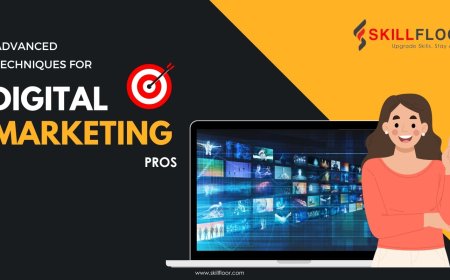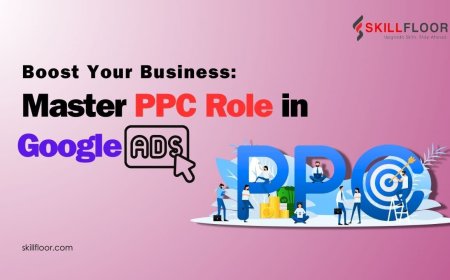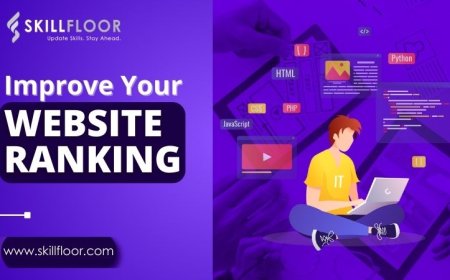How Digital Marketing Solutions Can Transform Your Business
Transform your business with digital marketing solutions. Explore SEO, PPC, social media, and more to drive growth in today's digital landscape.
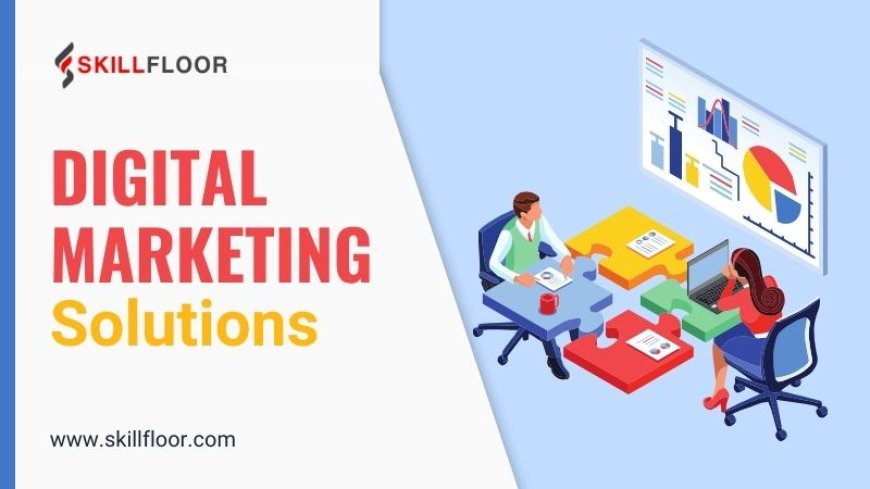
Digital marketing solutions are key to expressing new growth opportunities. By integrating digital marketing solutions into your strategy, you can effectively reach your target audience where they spend most of their time: online. This focused approach ensures that your marketing efforts are both seen and impactful, allowing you to build meaningful relationships with potential and current customers. Moreover, digital marketing solutions provide the tools to precisely analyze and respond to consumer behaviour. Utilizing digital marketing solutions, businesses can monitor the performance of their marketing initiatives in real time. This capability to quickly track and adjust marketing tactics is essential for staying responsive to market trends and customer needs. Ultimately, employing digital marketing isn’t just about boosting visibility, it's about strategically engaging with your audience to drive genuine interest and conversions.
Types of Digital Marketing Solutions
1. Search Engine Optimization (SEO)
Search Engine Optimization involves optimizing your website to improve its ranking in search engine results. This helps more people find your site when they search for related keywords. SEO includes keyword research, on-page optimization (like improving meta tags and content), and off-page optimization (such as building backlinks). By making your website more search-engine-friendly, you can attract more visitors.
2. Content Marketing
Content marketing focuses on creating and sharing valuable content to attract and engage your audience. This can include blog posts, articles, infographics, videos, and podcasts. By providing helpful information, businesses can establish themselves as knowledgeable, build trust with their audience, and drive organic traffic to their sites. Good content supports other marketing strategies like SEO and social media marketing.
3. Social Media Marketing
Social media platforms such as Facebook, Twitter, Instagram, LinkedIn, and TikTok allow businesses to connect with their audience, promote their brand, and drive traffic to their websites. Social media marketing involves creating and sharing content, running ads, and engaging with followers. Each platform has unique features and demographics, so you can tailor your strategies to reach your target audience.
4. Email Marketing
Email marketing is a powerful tool for staying in touch with your customers and driving conversions. By sending targeted emails to a list of subscribers, businesses can share promotions, updates, and personalized content. Email marketing platforms offer analytics to track open rates, click-through rates, and conversions, helping businesses refine their strategies for better results.
5. Pay-Per-Click (PPC) Advertising
PPC advertising lets you place ads on search engines and other platforms, paying a fee each time someone clicks on your ad. Google Ads is a well-known PPC platform where businesses bid on keywords related to their products or services. PPC can quickly drive traffic to your site and is useful for targeting specific demographics and locations. With careful management, PPC campaigns can provide a good return on investment.
6. Affiliate Marketing
Affiliate marketing is a strategy where businesses partner with other businesses or individuals who promote their products or services in exchange for a commission on sales generated through their referral links. This performance-based marketing approach can expand your reach and drive sales without upfront costs. Affiliates use various channels, including blogs, social media, and email marketing, to promote their offerings.
Key Benefits of Implementing Digital Marketing Solutions
1. Enhanced Reach and Visibility
One of the primary advantages of digital marketing is its ability to reach a global audience with minimal investment compared to traditional marketing channels. Through search engine optimization (SEO), paid advertising (PPC), and social media marketing, businesses can increase their online visibility and attract potential customers at various stages of the buying journey.
2. Targeted Audience Engagement
Unlike mass marketing approaches, digital marketing allows businesses to segment their audience based on demographics, interests, behaviours, and other factors. This targeted approach enables personalized communication and tailored offers, which resonate more effectively with consumers, leading to higher conversion rates and customer loyalty.
3. Cost-Effectiveness and Measurable ROI
Digital marketing campaigns are highly cost-effective compared to traditional advertising methods like print or TV ads. Moreover, digital channels provide robust analytics and tracking tools that allow businesses to measure the performance of their campaigns in real time. This data-driven approach not only helps optimize marketing strategies but also ensures a higher return on investment (ROI) by allocating resources to the most effective channels and tactics.
4. Building Brand Authority and Trust
Consistent, valuable content creation through blogs, social media posts, and email newsletters not only attracts potential customers but also positions businesses as authoritative voices within their industry. By providing valuable insights, solving customer problems, and fostering genuine interactions, businesses can build trust and credibility, which are essential for long-term success and customer retention.
5. Driving Conversions and Sales
Ultimately, the goal of any marketing effort is to drive conversions and generate sales. Digital marketing solutions excel in this area by guiding prospects through the sales funnel with targeted content and compelling calls-to-action (CTAs). Whether it's through persuasive landing pages, email marketing campaigns, or social media promotions, digital strategies can significantly increase lead generation and conversion rates.
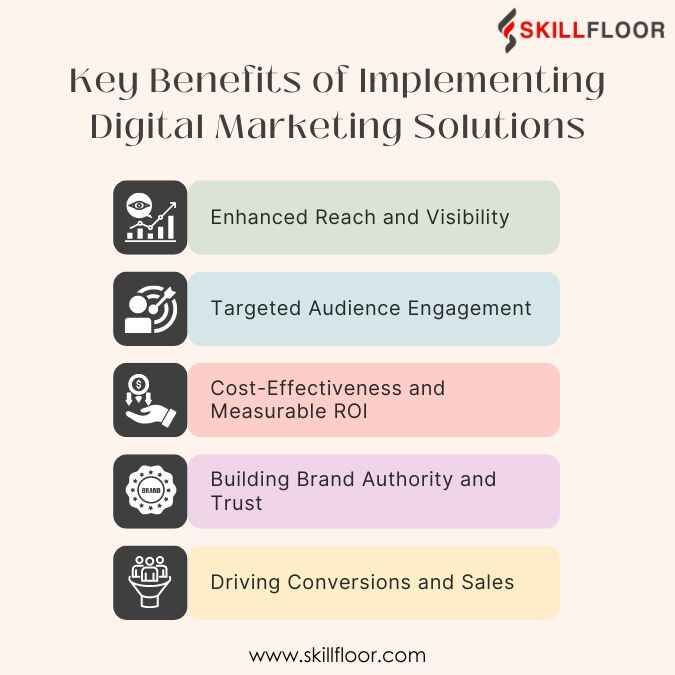
How to Implementing Digital Marketing Solutions for Your Business
To effectively harness the benefits of digital marketing, businesses should adopt a strategic approach tailored to their unique goals and target audience:
-
Set Clear Objectives: Define specific, measurable goals such as increasing website traffic, improving lead quality, or boosting online sales.
-
Understand Your Audience: Conduct thorough market research to identify your target audience's preferences, pain points, and online behaviour.
-
Choose the Right Channels: Select digital marketing channels that align with your business objectives and audience preferences. This may include SEO, PPC advertising, social media platforms, email marketing, content marketing, and more.
-
Create Compelling Content: Develop high-quality, relevant content that educates, entertains, or solves problems for your target audience. Content should be optimized for search engines and tailored to each digital channel.
-
Monitor and Optimize Performance: Regularly analyze key performance indicators (KPIs) such as website traffic, conversion rates, and ROI. Use this data to refine your strategies and maximize results over time.
Digital marketing solutions offer unparalleled opportunities for businesses to expand their reach, engage with targeted audiences, drive conversions, and achieve sustainable growth in today's competitive world. By embracing digital transformation and adopting a strategic marketing approach, businesses can position themselves for long-term success while adapting to evolving consumer behaviours and technological advancements.



















































